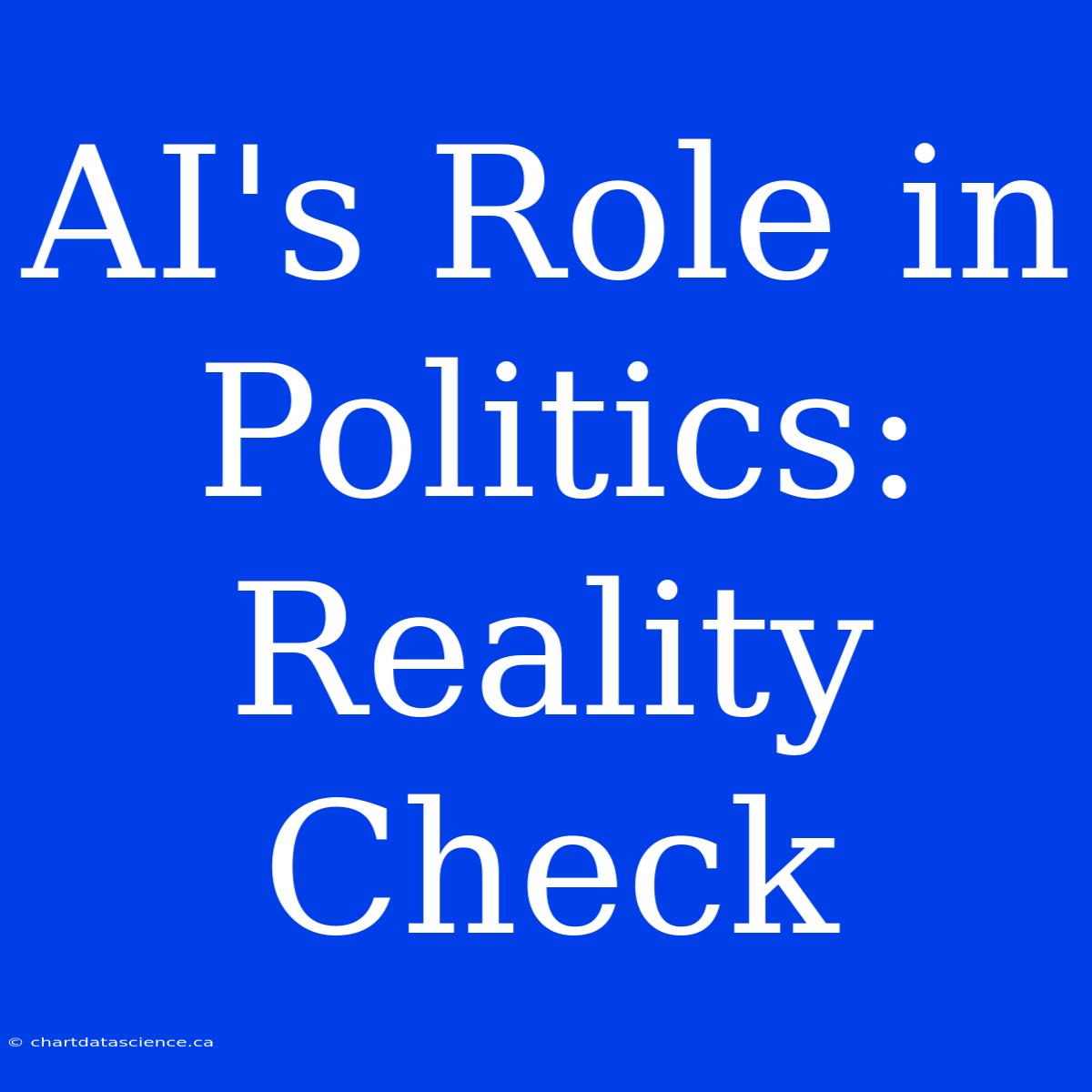AI's Role in Politics: Reality Check
You hear it everywhere: AI is changing the world, and politics is no exception. But let's be real, the hype surrounding AI in politics is sometimes more smoke than fire. While it's true AI has the potential to revolutionize the way we govern ourselves, we're not quite at the point where robots are running for office (yet!).
Beyond the Hype: What's AI Doing in Politics?
It's important to separate the futuristic AI fantasies from the real-world applications. Here's a closer look at how AI is currently impacting politics:
- Targeted Campaigning: This one's pretty straightforward. AI algorithms can analyze voter data, tailor messages, and target specific demographics with laser precision. This has the potential to boost voter turnout, but it also raises concerns about manipulation and misinformation.
- Policy Analysis: AI can crunch numbers and identify trends in complex datasets. This helps policymakers make informed decisions based on data-driven insights, streamlining the process and reducing bias.
- Chatbots and Citizen Engagement: Chatbots are increasingly used to provide information, answer questions, and even engage in discussions with constituents. While this can be beneficial in promoting transparency and citizen participation, there's still the risk of impersonal interactions and limited capabilities.
- Election Security: AI can be used to detect and prevent election fraud, analyze social media for disinformation, and even predict potential voting irregularities.
The Future of AI in Politics: Opportunities and Challenges
While AI's influence on politics is undeniable, the journey ahead is full of potential and perils. Here are some key considerations:
- Transparency and Accountability: The "black box" nature of AI algorithms raises concerns about transparency and accountability. If we don't understand how decisions are made, it's difficult to hold AI systems responsible for errors or biases.
- Bias and Discrimination: AI systems are trained on data, and that data can reflect existing societal biases. This can lead to unfair outcomes and reinforce existing inequalities.
- Ethical Dilemmas: Questions abound about the ethical use of AI in politics. Should AI systems decide who gets what resources? Who gets to vote? These are complex issues with no easy answers.
The Bottom Line: AI is not a magic bullet for political problems. It's a powerful tool that needs to be used responsibly and ethically.
As we move forward, it's crucial to have an open dialogue about the ethical implications of AI in politics, focusing on transparency, accountability, and mitigating potential biases. The future of democracy may well depend on it.

